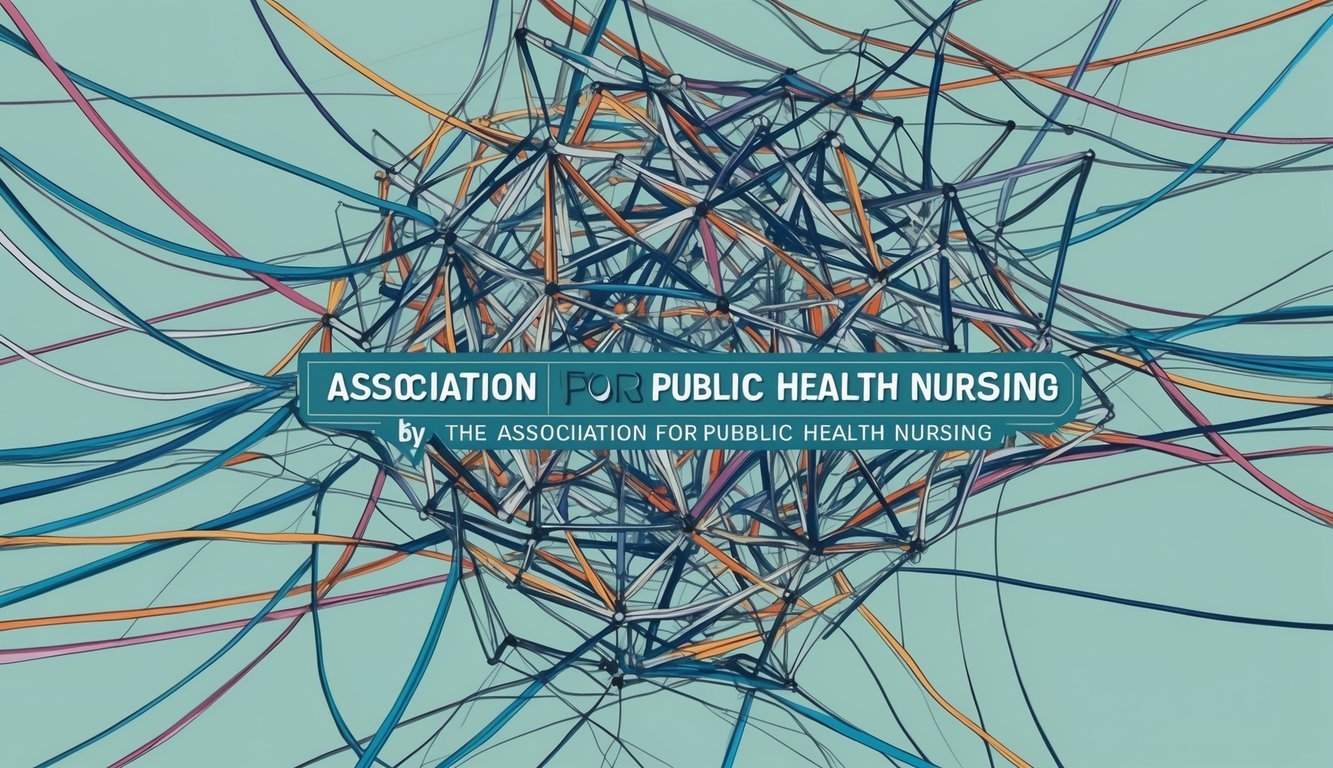Advanced Public Health Nursing (APHN) plays a crucial role in promoting and protecting community health.
APHNs work to improve population health by addressing various health challenges faced by communities.
This nursing specialty emphasizes the need for evidence-based practices and strong partnerships, allowing you to effectively advocate for public health policies and programs that benefit society.
As you explore the realm of APHN, you’ll discover how dedicated public health nurses utilize their expertise to develop and implement strategies that prevent illness and promote healthy behaviors.
This not only involves working directly with communities but also collaborating with other health professionals to ensure a holistic approach to health care.
By focusing on population health, you can contribute to the advancement of nursing practices that ultimately enhance the well-being of diverse communities.
Delving into the world of APHN opens up various career paths and certification opportunities, ensuring that you remain at the forefront of public health initiatives.
Whether you’re looking to deepen your knowledge or seeking ways to make a significant impact in your community, understanding the role of public health nursing is essential for fostering healthier populations.
For more information, consider visiting resources such as the American Public Health Association and the Military Health System.
Roles and Responsibilities
Advanced Public Health Nurses (APHNs) play a crucial role in enhancing community health through effective strategies and advocacy.
Their responsibilities encompass population health management and involvement in policy development.
Population Health Management
In your role as an APHN, you will focus on managing the health of populations.
This entails assessing health trends, identifying potential threats, and implementing strategies to prevent diseases.
You will utilize evidence-based practice to develop interventions that address community-specific needs.
Responsibilities may include conducting health assessments, designing health education programs, and collaborating with other healthcare professionals.
Key activities include:
- Data analysis to identify health disparities.
- Program development to improve health outcomes.
- Community engagement to foster sustainable health improvements.
By actively participating in these processes, you can significantly impact the overall health status of the populations you serve.
Advocacy and Policy Development
As an APHN, advocacy is integral to your duties.
You will work to promote policies that support public health initiatives and protect vulnerable populations.
Your advocacy efforts may include:
- Engaging with stakeholders to influence health policy.
- Participating in public forums to voice community health needs.
- Collaborating with governmental and non-governmental organizations.
You will also contribute to policy development by providing insights grounded in your nursing expertise.
This knowledge helps frame policies that effectively improve public health and allocate resources appropriately.
By championing these efforts, you ensure that health policies are informed by current data and reflect the needs of the communities.
Educational and Professional Development

Education and ongoing professional development are vital for advanced public health nurses (APHNs) to remain effective in their roles.
These components ensure that you are equipped with the latest knowledge and skills necessary to address public health challenges.
Nursing Education
Your journey begins with nursing education, which typically involves obtaining a Bachelor of Science in Nursing (BSN) or an advanced degree.
A critical component of this education is gaining the foundational knowledge of public health principles, epidemiology, and community health nursing practices.
Many APHNs pursue further specialization through graduate programs focused on public health.
Institutions often collaborate with organizations like the American Public Health Association to offer relevant curricula.
To prepare for the APHN role, it is imperative to engage in coursework that emphasizes leadership, policy development, and health program management.
This education provides the framework needed for effective practice in diverse communities.
Continuing Education
Continuing education is essential for maintaining your competence and enhancing your professional skills.
Many states and organizations require a certain number of continuing education units (CEUs) for license renewal.
Various programs, webinars, and workshops are available, often facilitated by the Council of Public Health Nursing Organizations.
Engaging in these opportunities ensures you stay current with evolving public health practices and research.
You might also consider pursuing certification, such as the Advanced Public Health Nursing Certification (PHNA-BC), which necessitates ongoing professional development activities.
Keeping a record of your professional development is crucial for renewal applications.
Global and Regional Focus
This section highlights significant initiatives within the Asia Pacific region and explores health equity among diverse populations.
Understanding these elements is crucial for addressing global health challenges effectively.
Asia Pacific Initiatives
The Asia Pacific region is actively engaged in improving public health through various initiatives.
Countries like Australia and Japan prioritize health promotion programs that address chronic diseases and communicable illnesses.
Key initiatives include:
- Australia: Focuses on mental health and indigenous health initiatives.
- Hong Kong: Implements extensive public health campaigns on tobacco control and respiratory illnesses.
- Singapore: Promotes a national preventive healthcare strategy emphasizing community engagement.
Each nation collaborates on regional frameworks to enhance health systems, share best practices, and conduct joint research.
Resources are available through platforms like the Asia Pacific Alliance for the Control of Beg Bug that support these collaborative efforts.
Health Equity in Diverse Populations
Ensuring health equity in diverse populations is a critical focus area across the Asia Pacific.
Countries like Taiwan and the Philippines are incorporating health equity principles into their healthcare policies.
Strategies for promoting health equity include:
- Inclusivity: Tailoring healthcare services to meet the needs of marginalized communities.
- Accessibility: Improving access to quality healthcare through outreach programs.
- Education: Raising awareness about health issues affecting various demographic groups, including women and children.
For instance, health programs in Korea and Singapore are designed to specifically address the needs of expatriates and migrant workers, recognizing their unique challenges.
Resources such as the World Health Organization’s Health Equity page provide additional insights on achieving health equity.
Current and Emerging Challenges

Addressing current and emerging challenges in public health nursing requires a multifaceted approach.
Key issues include the urgency to respond effectively to public health crises and the growing impact of climate change on health outcomes.
Public Health Crises Response
Public health crises, such as pandemics, demand rapid mobilization of resources and skilled professionals.
You may encounter overwhelming stress as health workers deal with increased workloads and heightened responsibilities.
For instance, the COVID-19 pandemic showcased the critical need for robust infection prevention protocols.
- Mental Health Impact: Many professionals report symptoms of anxiety and depression due to the pressures faced during these crises.
- Resource Allocation: Limited funding and staff shortages hinder effective responses to crises.
Active involvement in emergency preparedness and response planning can enhance your effectiveness.
Continuous training is necessary for you to stay updated on best practices.
Climate Change and Health
Climate change poses significant health risks, from respiratory issues linked to poor air quality to increased prevalence of vector-borne diseases.
As you navigate these challenges, understanding the health impacts of climate change is crucial.
- Heat-Related Illnesses: Rising temperatures contribute to an increase in heat-related health problems, especially among vulnerable populations.
- Food Security: Changes in climate affect agricultural productivity, leading to food shortages that can aggravate malnutrition.
You should engage in community education to promote awareness about these health risks and advocate for sustainable practices that mitigate their effects.
Collaboration with environmental organizations can strengthen your efforts in addressing these emerging challenges.
Strategic Practices and Programs

Effective strategies in Advanced Public Health Nursing (APHN) focus on specific programs and healthcare sector engagement.
Understanding these aspects can enhance population health outcomes and ensure integrated approaches to health promotion.
Population Health Programs
Population health programs aim to address the comprehensive healthcare needs of communities.
These programs utilize data analytics to identify health trends and gaps.
Key initiatives often include preventive care, health education, and chronic disease management.
A notable example is the PREP (Public Health Education and Promotion) initiative.
PREP focuses on enhancing public awareness about health issues, encouraging preventive measures, and promoting healthy lifestyle choices.
You can incorporate resources from organizations like the CDC and WHO that provide vital information on population health strategies and best practices.
Healthcare Sector Engagement
Engaging with various sectors is crucial for effective public health initiatives.
Collaboration between healthcare providers, local governments, and community organizations fosters a unified approach to health challenges.
Healthcare sector engagement may involve:
- Establishing partnerships with local clinics for better service delivery.
- Working with educational institutions to provide health education workshops.
- Engaging in Upcoming Events that focus on health promotion and community well-being.
These collaborative efforts can enhance resource sharing, promote public health policies, and improve access to care for underserved populations.
You can explore additional strategies on community engagement through platforms like Public Health Agency and Health Affairs.

